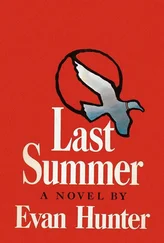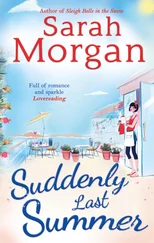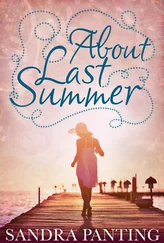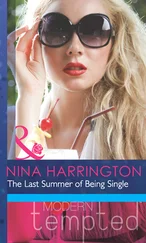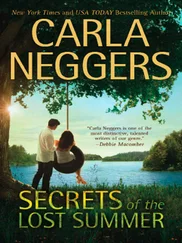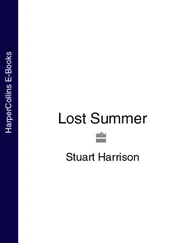Uncle asked if I ever went with Mama to the co-op. I nodded. Every week. Sometimes on Saturday, other times after school. The co-op was close to the house. It was like a shed on the pavement, a big shed. It was painted blue on the outside but the paint was peeling. You could see the wood. At the beginning of the month there would be a long line from the inside to the outside and onto the street. In the middle of the month it was emptier. The shed was lined with shelves. It was dusty. Sawdust covered the floor. They had bags of rice, flour, sugar, oil, boxes of tea. There were also frozen chickens, but they were in a freezer behind the counter. If you wanted a chicken you had to ask and a man would bring it out. He took your booklet. It was small, the size of the box of cigarettes hidden in the bathroom cabinet. In the front of it was Baba’s name, Mama’s name, and a number. A code for how much we were allowed of each thing. Sometimes people would try to take more than what they were allowed. They would raise their arms and shout. One man tried to take a chicken but wasn’t allowed. You were allowed a whole chicken only if you were a family. Some people were only allowed half a chicken, so they could have one chicken every two months since they only sold chicken by the one . People shouted and tugged at their clothes. It was only the men who got angry. I would stand by Mama’s side holding her hand. She never spoke to anyone. She would stand and look straight ahead as if nothing were happening.
I watched until I understood everything about the co-op. They also sold bread, but you had to get it from a window on the side. We were allowed five baladi breads a day. Uncle told us one day that bread was our downfall. People were taking their allowance and selling it to other people who wanted more. They sold it for much more than what they bought it for. Mama looked at him with her hands crossed on her chest. There is a black market for everything now, I heard her say. Uncle shook his head. The catastrophe is the government employees are doing it too. Some people couldn’t get booklets because they didn’t have birth certificates, and you needed a birth certificate to get a booklet. So what would those people do? Black market. Uncle said co-ops exist because of Nasser’s mistakes. He bankrupted the country so it had to ration subsidized foods. Why can’t they just sell things in a supermarket? He laughed loudly. It would be a revolution. The country wouldn’t survive another revolution . But Baba said we had two revolutions and nothing changed. Baba said we need a real revolution. Your Baba means a different kind of revolution. If the revolution were to come, it would be one of hunger, like the bread riots. I looked at Uncle. They didn’t teach us these things in school. Only Uncle and Dido told me. And Baba too, until he left. Mama said it was best to keep such thoughts to oneself, but Uncle never kept any thoughts to himself. He said that where he lived was like putting a finger on a pulse. Measuring a heartbeat. In Faiyûm, where all the farmers lived, you knew what people would accept and what they wouldn’t. If they stopped having co-ops, the farmers would go into the streets and start throwing stones and setting fires, like when flour became more expensive. It made bread more expensive. People revolted. Those were the bread riots. This is the revolution of hunger. It was the year you were born. Uncle put his hands on the sofa and pushed himself up. He put his hand on my hair and ruffled it. You learned a few new things today .
There was a picture of Mama and Baba’s wedding on the wall. Every Sunday Uncle would stand in front of it and stare for a long time. Mama’s hair was long then, it almost reached her waist. Baba had on thick glasses and sideburns. He was wearing a ring in the picture but Mama said he took it off after the wedding and never put it on again. I asked where it was. Mama wasn’t sure. Some days when she went out I would look through her drawers. I wanted to put Baba’s ring under my bed with the albums. I also wanted to take something from his office but was scared Mama might notice. I went and stood next to Uncle and asked what he was looking at. I miss your Baba, he said. He squeezed my shoulder and told me to get Mama. They had business to discuss. I asked Uncle if he had been to Geneva. He bent his head down and frowned, then started laughing. What makes you ask about Geneva? Mama came through the mashrabiyya doors and told me to go to my room. I heard Uncle ask why I wanted to know about Geneva. Mama lowered her voice. I heard her say Baba. I didn’t know why nobody talked about Baba even though everyone missed him. I still counted every day but didn’t know anymore what I was counting to.
—
After Uncle left, Mama said we were going to the Mugamma. It was the biggest building in Cairo and everyone’s papers were there. Mama had some business to take care of. The driver would be here in twenty minutes. I needed to make sure Ossi had enough water in his bowl. I needed to tidy my room. Was my bed properly made? We would have lunch when we got back. What would we have? Could I help choose?
Mama gave me a breadstick. She had on a dress the color of sand with a thin belt around it. She was wearing the sandals Baba had bought her when he met the famous Egyptian spy. They were from Hamburg. They were brown with many straps. Mama went down the steps. She told me to hurry and close the door behind me well. I sat in the back of the car next to Mama with the window down. We drove across the street named after the revolution towards the bridge. Mama stared out of the window. She was sad for Egypt. The driver slowed down. One of the big red buses had stopped. He stopped beside it. Its front was open and smoke was coming out. People were watching. Everyone had come off the bus. Men and women. A boy and girl sat on the side of the pavement with two plastic bags next to them. Women fanned themselves with newspapers. One man poured water from a bottle over his head. Some of the men were barefoot. I had asked Mama before how come people walked barefoot in the street. She told me it was a product of disillusionment. Then she explained. It was like looking at a painting and someone telling you that you see one thing, but you know that when you look, you see something else. Then every time they show you a painting, they do the same thing. You don’t believe them anymore. After a while you stop caring. I listened. The driver started moving again. I asked if the bus was going to explode. I knew buses exploded. I crunched my breadstick. Mama turned her neck and watched as the crumbs fell onto my lap. She told me to be more careful. She looked away and I brushed them onto the floor.
The bridge to downtown had two lions on each side. I gave them secret names in my head and whispered to them as we drove by. The lions guarded the Nile. They also protected the fishermen and their families who lived on boats as small as our bathtub. I imagined living in a bathtub. I asked Mama how they went to the toilet. She tsssked and made a face. Maybe the lions cleaned it up. On the other side of the bridge were two more lions. Beside them on a lamppost was a poster of the president. There were posters of the president everywhere. My cousins giggled when he came on TV. Dido made fun of them. He said the president was old enough to be their father. They didn’t care. He didn’t look old. Their dream was to marry a pilot and officer. The president used to fly planes in the war.
The Mugamma was shaped like a curve and had millions of windows. Uncle said that when it was built it was an architecture of hope. That was also something of the past. Mama told the driver to stay parked where he was. We would be out soon. We were double-parked next to a big black car. You weren’t allowed to double-park but Mama gave the police money then we could stay. We walked towards the big metal gates. People stared at us. There were policemen everywhere. Outside, inside. There were also men who looked like the Saturday men. Mama took my hand. She pulled me. We walked up the big marble staircase. It turned. We went up more. Then again. How many more floors? Come on. Is it far? Mama asked a policeman which way. He pointed. People were shouting. We walked. There were hundreds of doors. Policemen were sitting on chairs by every door. We kept walking. The corridor was long. It smelled of food. My feet hurt. I was hot. I looked into one of the offices. People had newspapers on their desks and were eating with their hands. I couldn’t see what they were eating except for the bread. Everyone ate bread. They used it instead of forks or spoons. Mama shook her head. I was never allowed to use my hands. At the end of the corridor we turned left into a hall. There was a counter with many windows and people waiting in lines. They were pushing. People were always pushing. They pushed in the street. They pushed on the bus. They pushed at the co-op. They pushed in Port Said. When there were lots of people outside the shop near school they pushed there too. If you were tall it was better because you could stretch your hand over everyone and get what you wanted. I watch a short woman shaped like Grandpapa. She is wearing a red galabia and blue slippers with a white flower, like the kind we buy in Alexandria in the summer that break after a week and make Mama upset. A man who looks like a giraffe is standing next to her. His arm is stretched over everyone and he has it almost in the window. The line is meant to be one line but it’s now three. People stick out from all sides. The red lady taps the giraffe man’s hand. She nods with her head. He takes her paper. Both their papers are almost at the window.
Читать дальше
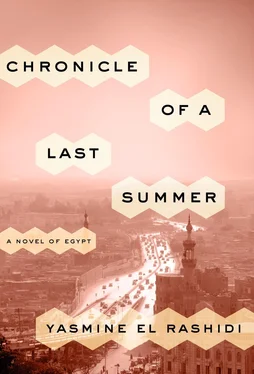
![Маргарет Миллар - Rose's Last Summer [= The Lively Corpse]](/books/384369/margaret-millar-rose-s-last-summer-the-lively-c-thumb.webp)
